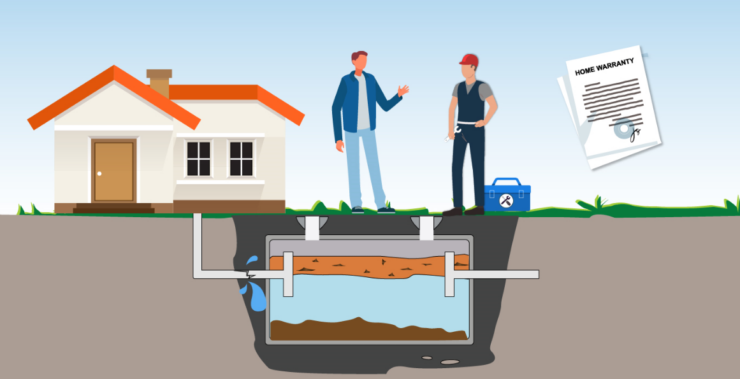Every residence has a septic tank installed underground, but do people pay importance to its maintenance? No, people often forget to take care of their septic tanks and, in the future, face many issues with drainage blocking, backflows, and overflows. A septic system ensures that all the drain water and sewage waste gets collected in a place, thus, resulting in the smooth functions of the drainage systems of a home.
With years of use, the septic system gets blocked, and all that sludge formation worsens the scenario. The problem lies with most homeowners not realizing the importance of regular septic tank maintenance. To avoid future hassles like a sudden overflow of sewage in the backyard or cracking of septic tanks and backflows, you must seek a septic tank service from a professional.
How Does A Septic System Work?
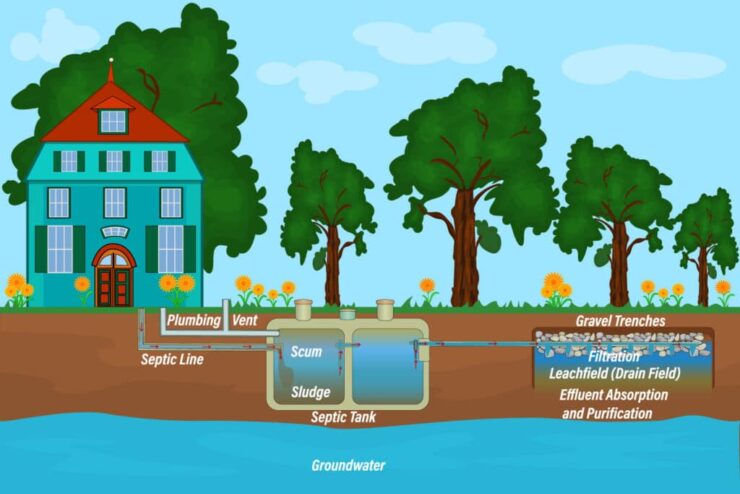
A septic system is integral to every residential building because it manages the waste from drains and pipes. The septic system mainly depends on its tank, popularly recognized as the septic tank, which resembles a gigantic storage tank responsible for storing and filtering all that sewage waste.
The purified liquids are passed through internal drains, and a new batch of sewage enters through the channels connected with the building. This cycle continues until the septic tank is blocked and full of sludge formation. During this time, it requires a cleaning or plumbing service performed by professionals.
5 Good Habits To Keep Your Septic System Happy And Healthy
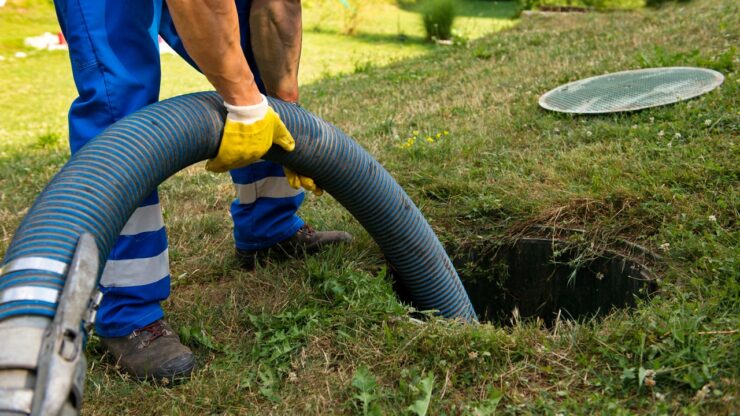
Your septic system, which is responsible for collecting all the drainage waste of your home, deserves to be happy and healthy. But how can you make it happy? What can you do to keep your septic system functioning smoothly for a lifetime? A few good habits can help you be careful and smarter.
Getting Rid Of Chemicals
The best way to stop damaging your septic system is to banish the use of harsh chemicals in toilet and bathroom cleaning or floor and cloth washing. The more chemicals you drain out, the more damage you cause to the septic system. The simple things you use in your daily routine, such as detergents, bleaches, or any acidic products, are all harmful.
Another thing to avoid is draining out materials like grease, oil, or any type of fat-based, oily products; this increases the rate of sludge formation and creates blockages. To ensure that you are not passing down chemicals to the septic system, you can replace your harsh, chemical-based products with organic and septic-safe products. This will prevent the septic system and you and your family from harsh chemicals.
Never Missing Out On Maintenance
The best way to keep your septic system happy is never to miss out on maintenance. Experts suggest that a regular septic tank usually requires a cleaning service once in three to five years. This span varies on the amount of sewage in a building; if the amount is massive, the requirement will be doubled.
Seeking a professional maintenance service is also ensuring that your septic system is free from damages that can contaminate groundwater or soil. Cleaning services also help reduce bacterial formation in septic tanks.
Minimizing Water Wastage
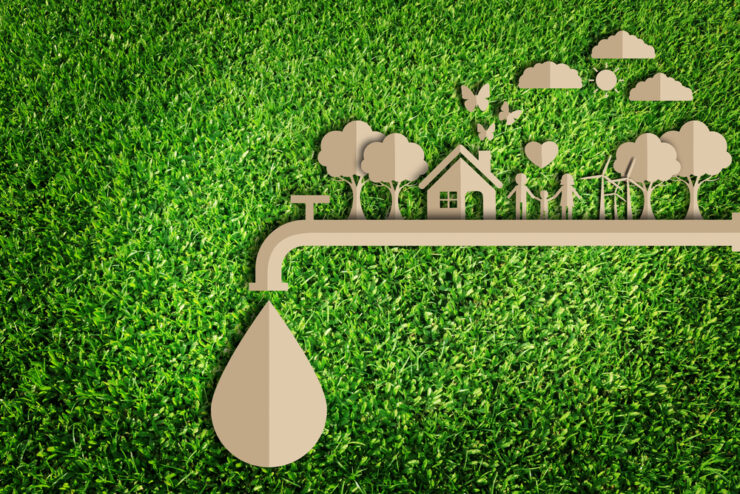
The less the drainage of water, the less the requirement for maintenance. If you can minimize the consumption and wastage of water daily, you can reduce the overall wastage collected in the septic tank. The less the wastage is, the more years you can be assured that it does not require sudden maintenance and repair.
Introduce A Septic System Additive
Many homeowners are unaware that introducing a septic system additive can introduce suitable enzymes and bacteria into their septic tanks, keeping them healthy and not interrupting the purification process. By introducing these additives, you can also be sure that the hygiene of the surrounding area of the septic tank is maintained and that a healthy population of bacteria is created.
Studies have found that septic system additives also prevent excessive sludge formation, thus, preventing clogging.
Avoiding The Use Of A Garbage Disposal
Most modern homes have a garbage disposal system, which is one of the ways to ease the contemporary lifestyle. There is no need to carry the garbage bags downstairs to the dustbin; it can be done right under the sink, through the channel. But did you know that a garbage disposal can be connected to the septic system? Yes, all that kitchen waste goes to your septic tank, which is a significant threat to future overflowing and blockages.
To keep your septic tanks clean and healthy, you must get rid of garbage disposal and, instead, find other simpler ways of dealing with this issue. Environmentalists suggest that practicing composting and recycling waste can help solve modern garbage problems.
3 Tips From Experts That Can Prevent You From Making Mistakes
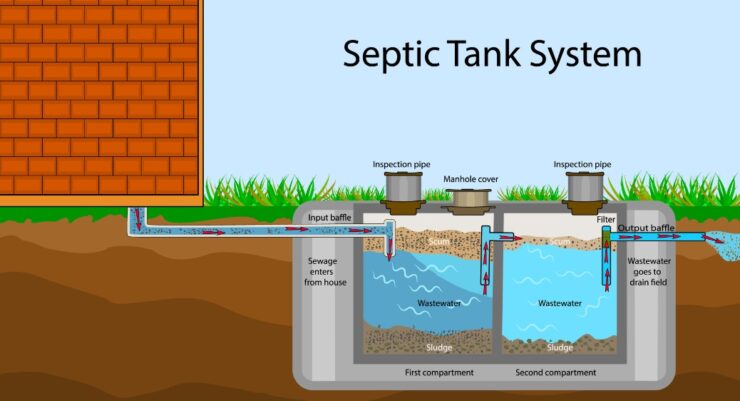
A few common mistakes you make daily can result in big septic system issues in the near future. To avoid harming your septic tanks even more, from now on, you can follow these easy steps suggested by experts.
- Stop flushing harmful chemicals, tissues, and sanitary products like pads and tampons, condoms, dental floss, cigarette butts, or diapers from your toilets. This will increase the risk of septic tank blockages.
- Be careful of what you are draining down the kitchen sinks. Avoid draining oily fluids, foods with grease-like textures, coffee grinds, food scraps, and similar things.
- Keep pumping your septic tanks from time to time to prevent clogging of drains or slower drains.
Final Words
The key to a healthy and happy septic system is in your hands. By monitoring a few wise steps, like cutting down the use of chemicals, being mindful of what you are washing down the drains, and how much water wastage you can minimize, you can help the septic system function smoothly for a long time. Banishing garbage disposals and introducing septic system additives is a bonus to the improvised health of the system.

